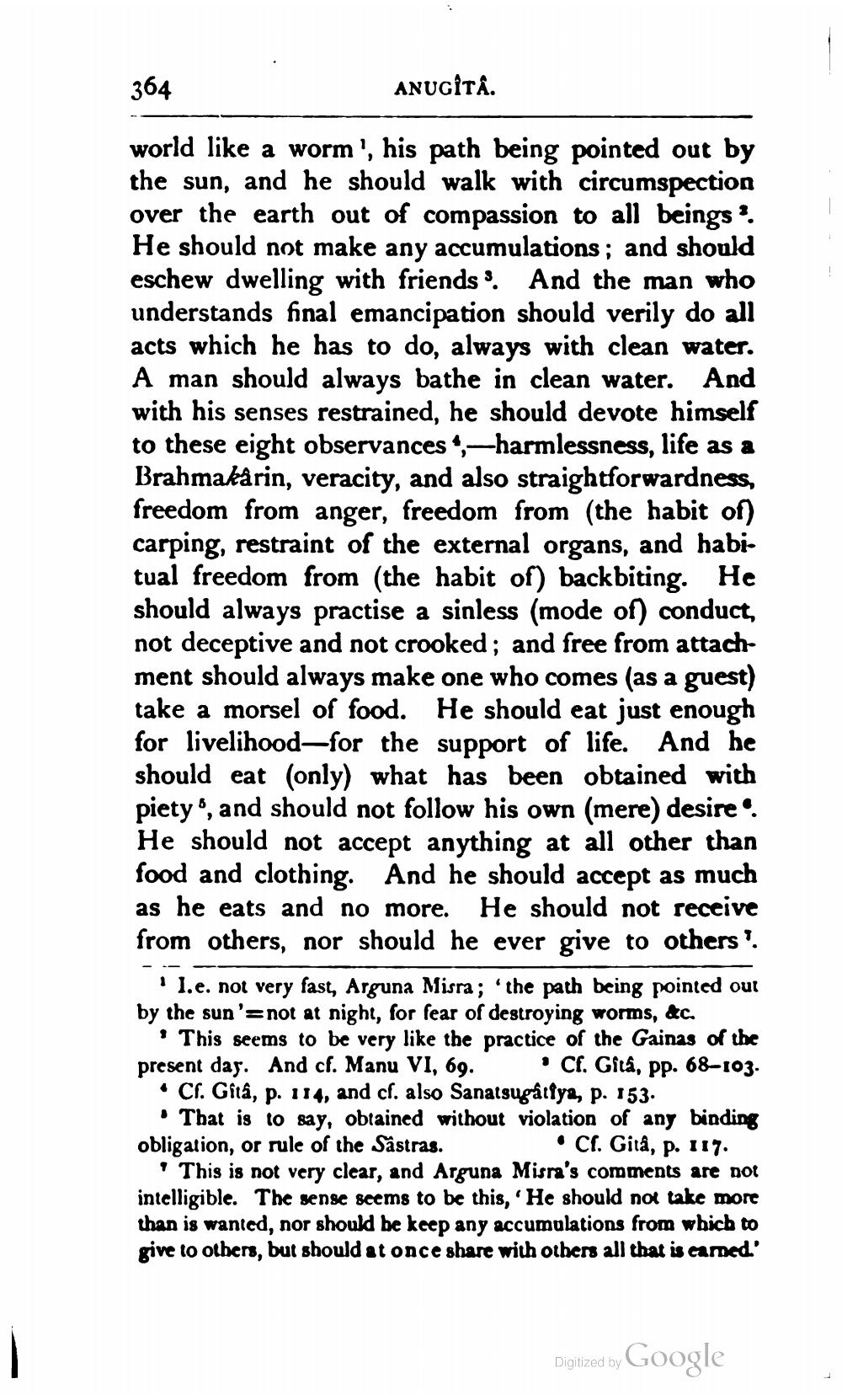________________
364
ANUGÍTÅ.
world like a worm', his path being pointed out by the sun, and he should walk with circumspection over the earth out of compassion to all beings! He should not make any accumulations; and should eschew dwelling with friends. And the man who understands final emancipation should verily do all acts which he has to do, always with clean water. A man should always bathe in clean water. And with his senses restrained, he should devote himself to these eight observances,- harmlessness, life as a Brahmakårin, veracity, and also straightforwardness, freedom from anger, freedom from (the habit of) carping, restraint of the external organs, and habitual freedom from (the habit of) backbiting. He should always practise a sinless (mode of) conduct, not deceptive and not crooked; and free from attach ment should always make one who comes (as a guest) take a morsel of food. He should eat just enough for livelihood—for the support of life. And he should eat (only) what has been obtained with piety, and should not follow his own (mere) desire.. He should not accept anything at all other than food and clothing. And he should accept as much as he eats and no more. He should not receive from others, nor should he ever give to others'.
' I.e. not very fast, Arguna Misra; "the path being pointed out by the sun'=not at night, for fear of destroying worms, &c.
This seems to be very like the practice of the Gainas of the present day. And cf. Manu VI, 69. ' Cf. Gitá, pp. 68-103. • Cl. Gita, p. 114, and cf. also Sanatsu gåttya, p. 153.
• That is to say, obtained without violation of any binding obligation, or rule of the Såstras.
• Cl. Gità, p. 117. "This is not very clear, and Arguna Misra's comments are not intelligible. The sense seems to be this, 'He should not take more than is wanıcd, nor should be keep any accumulations from which to give to others, but should at once share with others all that is camed'
Digitized by Google




